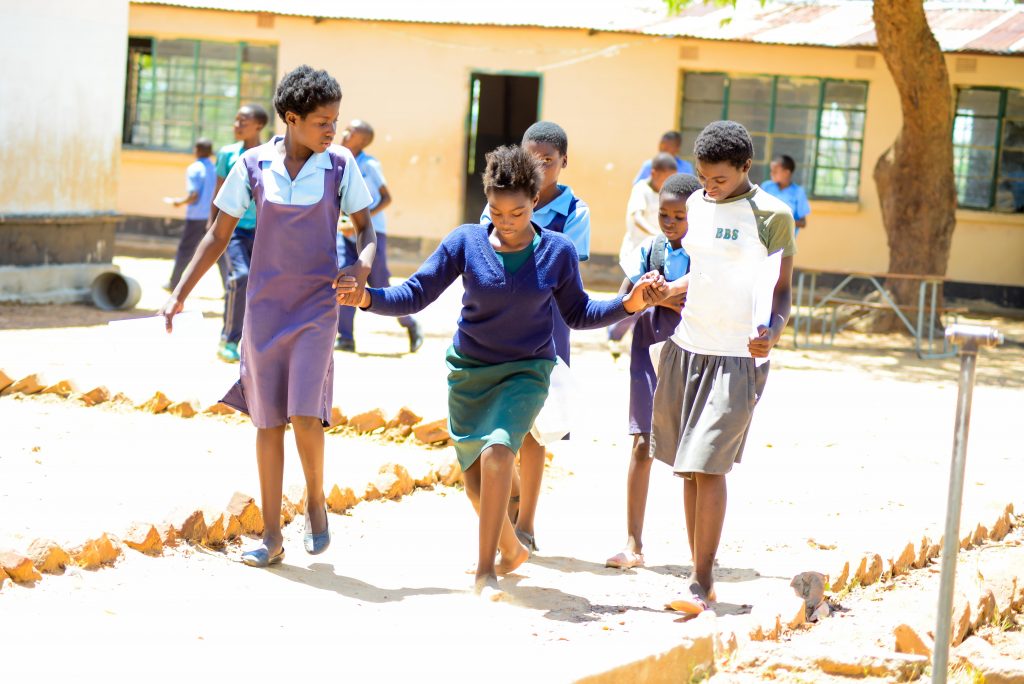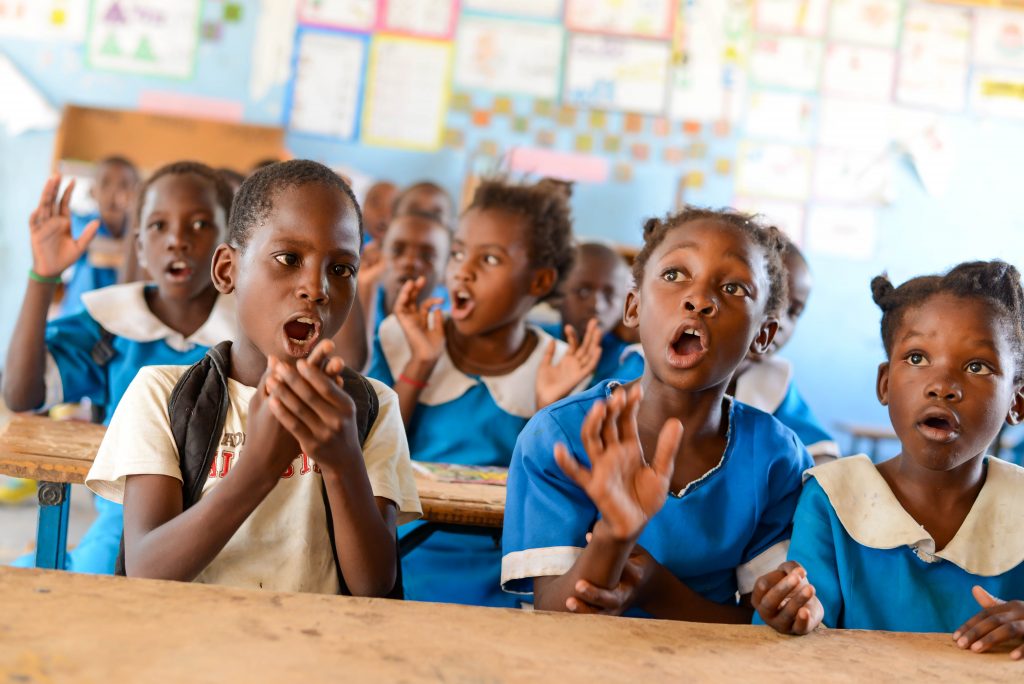Children with disabilities are often disproportionately exposed to risks such as poverty, discrimination and stigma, institutionalisation, abuse, and limited access to services such as education. The Inclusive Education programme is about ensuring that children and young adults with disabilities have access to a quality education that is inclusive, removes barriers to learning, respects rights, and leads to fulfilment of potential.
NAD has worked with Inclusive Education programmes in Zambia since 2015.
Understanding barriers to learning in Zambia
These last years, Zambian Disabled People’s Organisations (DPOs) have influenced changes in policy and legislation that promotes a quality, free, and Inclusive Education in all schools, and mandates teachers to teach all learners in mainstream schools. Such as the Education Act of 2011, the Disability Act no. 6 of 2012, and the Constitution review of 2016. However, children with disabilities in Zambia continue to face multiple barriers to quality education.
The most common barriers to education are often inadequately skilled teachers and school leadership, inaccessible buildings and curriculum, and limited knowledge about the needs and rights of children with disabilities by teachers, parents, community leaders, and DPOs.
The low enrolment rates and high dropout rates affects the inclusion of persons with disabilities in all aspects of society. It takes away their opportunity for higher education, and has severe impact on their access to employment.

Promoting inclusive education
NAD, in collaboration with the Enabling Education Network (EENET), has developed the Inclusive Learning Approach. It is a holistic approach to Inclusive Education that involves multiple stakeholders, such as children, parents, teachers, school leadership, communities, education authorities and DPOs.
We work with DPOs and governments to ensure Inclusive Education in local schools, so that children with disabilities can stay with their families, build social networks and be part of the local community together with other children.
The Inclusive Learning Approach has two main components:
- the Inclusive Teaching component
- the Inclusive Advocacy component
Through the Inclusive Teaching component, we work with schools and the education systems to give them the tools necessary to become inclusive. Through the Inclusive Advocacy component, we work with persons with disabilities and DPOs to strengthen their knowledge on Inclusive Education and the use of national and international legal frameworks, so that they can effectively advocate for their rights, raise awareness and hold their government accountable.

Main achievements in Zambia
Some of the main achievements of our Inclusive Education work and partnerships are:
The Inclusive Teaching component
- The Zambian education sector has started Inclusive Education programmes in six schools in southern Zambia.
- 11 Inclusive Education training modules were approved by the Ministry of General Education in October 2020. The modules are now recommended for use in Zambian colleges of education and schools to facilitate the training in Inclusive Education.
- A team of trainer of trainers (TOTs), trained by an international consultant, have started to train college and university lecturers in all faculties of teacher education in Zambia.
- Material for homebased education (poster and booklet) was produced in cooperation with EENET and distributed to the communities in 2020. Training in homebased education for health workers and parents was also provided.
The Inclusive Advocacy component will start in 2022.

